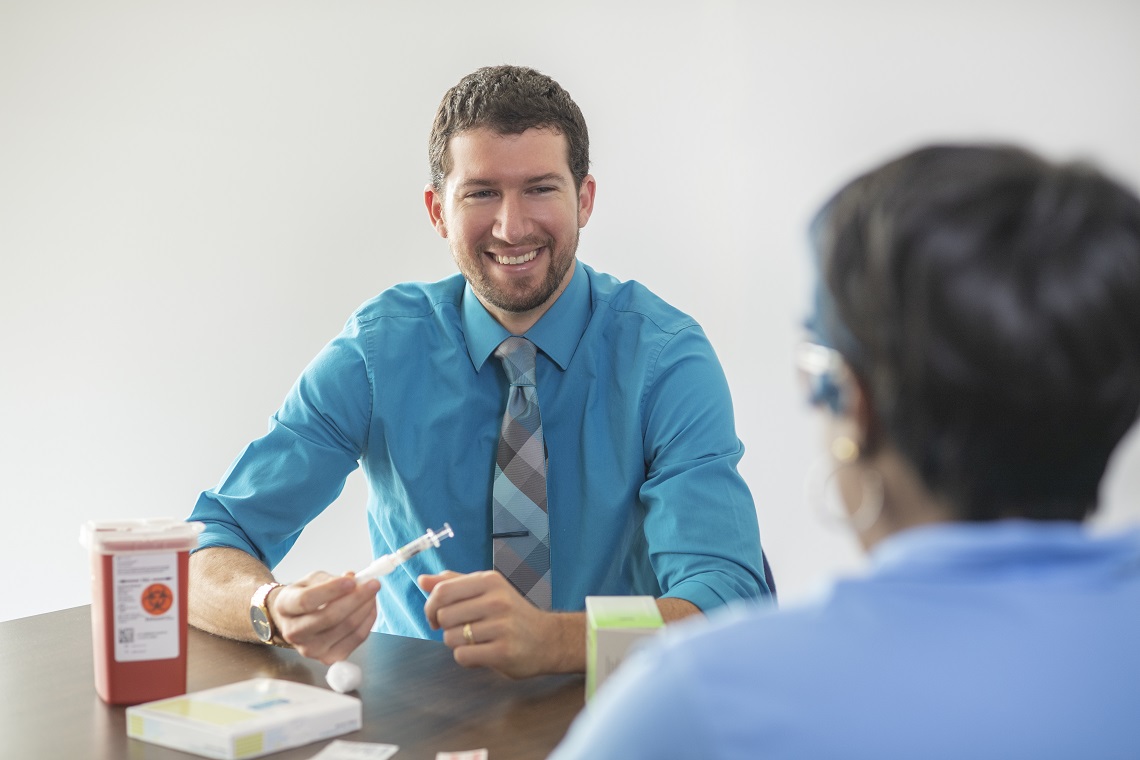
Great news. There is a new vaccine available to protect yourself and loved ones form Respiratory Syncytial Virus (RSV). Here are some frequently asked questions about RSV and the new vaccine.
What is RSV?
RSV is caused by a common respiratory virus that infects your breathing tubes and lungs. When someone with RSV coughs or sneezes, tiny droplets can carry the virus into the air. If these droplets land on things and you touch them, then touch your face, the virus can get inside you. The virus can also enter your body through direct contact, like kissing the face of an infected child.
What are the symptoms of RSV?
In most cases, RSV causes mild cold like symptoms that resolve on their own. Most people recover within a week or two. However, some people may develop serious health issues. Older adults are at greater risk for developing these complications. Symptoms appear in stages and not all at once. People infected with RSV, often have a:
- Runny nose
- Decrease in appetite
- Coughing
- Sneezing
- Fever
- Wheezing
Am I at risk of a more severe case of RSV?
RSV can be dangerous in certain groups of adults, especially older adults. In the United States, it is estimated between 60,000 – 160,000 older adults are hospitalized due to RSV infection. This virus can often lead to serious health problems like bronchitis or pneumonia. Older adults are at higher risk for developing serious complications. Talk to your doctor or pharmacist about the vaccine if you have any of these risk factors:
- >60 years old
- Have a chronic heart or lung disease
- Weakened immune system
- Underlying health conditions (diabetes, kidney disease, liver disease)
- Living in a nursing home or long- term care facilities
What about self-care?
Those who have a mild case of RSV will recover within a week or two. During these couple of weeks, you may not feel well. Here are some things you can do to manage your symptoms:
- For fever and pain: You can take over-the-counter acetaminophen or ibuprofen for some relief.
- Stay hydrated: You can become easily dehydrated, so drink plenty of water and fluids. Avoid drinking sugary drinks. They may taste good, but they won’t keep you hydrated.
- Coughing/sneezing: There’s a variety of options to choose from, so talk to your pharmacist about which is the best option for you.
- Children: Talk to a healthcare provider before giving your child any medication. Never give a child Aspirin.
How to prevent RSV?
Keeping yourself safe from RSV is important. One way to do that is by washing your hands often. This is especially true after being around people who are sick. Whenever you cough or sneeze it is a good idea to use a tissue to cover your mouth. The best way to prevent RSV is to get vaccinated.
What can I expect from the new vaccine?
There are two brands of the new vaccine available to fight RSV: Arexvy and ABRYSVO are the brand names. Bremo Pharmacy will have Abrysvo available. Both vaccines are approved for adults who are 60 years old and up.
They are given as a single dose in your arm. After getting the vaccine you may feel pain at the injection site, tiredness, or a headache. These side effects will go away within a couple of days. Getting vaccinated will help protect yourself and your loved ones. Talk to your doctor or pharmacist today about whether you should get vaccinated.
How can I get the vaccine?
If you’re ready to protect yourself from RSV, Bremo Pharmacy can help you get the vaccine. Check out our vaccination page and book an appointment now.
For more information about RSV, you can visit the Centers for Disease Control (CDC) RSV page here.


